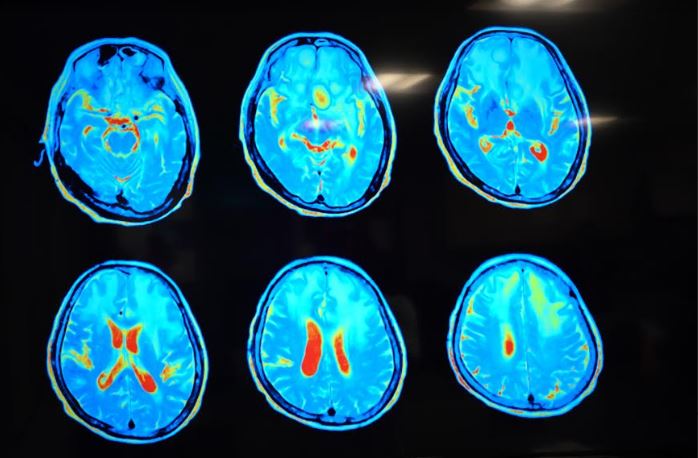
by Jessalyn Lau
The Corona Virus pandemic is not the only health crisis we face. Consider these comparisons:
| Corona Virus Disease | Dementia | |
| Global Cases | 27.3 million | 50 Million |
| Reported deaths | 888,000 THIS YEAR 3% | 2 Million 4% |
| Recovered | 26,367,750 96.7% | ZERO |
Every three seconds another person is diagnosed with dementia. This includes Alzheimer’s disease, Vascular Dementia, Lewy Body Disease and Frontotemporal Dementia.
Cases of dementia have increased 120% in the last 20 years. Estimates are for 152 million cases by 2050. 1-3 people die with dementia. Dementia care is expensive, costing more than one trillion dollars annually. Medical Health Insurance will only cover about 30% of these expenses.
Dementia is the 5th leading cause of death, yet we have made minimal progress in specific treatments or a cure.
Cases of dementia have increased 120% in the last 20 years. Estimates are for 152 million cases by 2050. 1-3 people die with dementia. Dementia care is expensive, costing more than one trillion dollars annually. Medical Health Insurance will only cover about 30% of these expenses.
Dementia is the 5th leading cause of death, yet we have made minimal progress in specific treatments or a cure.
First let’s dispel some of the many myths surrounding dementia.
MYTH 1 - Memory loss always equals dementia.
Check with your health care provider and consider side effects of medicines, chronic alcoholism, stroke, medical illness, liver or kidney disease, psychological issues such as chronic stress, depression, anxiety, brain infections.
_________
MYTH 2 - Dementia and Alzheimer’s disease are the same.
Alzheimer’s disease is only one cause of dementia. Dementia can also be due to vascular diseases including hypertension, hypercholesterolemia and stroke. Chronic neurological
conditions like Parkinson’s disease, Lewy Body disease, Huntington disease, Pick Disease, and Multiple Sclerosis can cause dementia. Certain infections like HIV/AIDs, Lyme disease, Creutzfeld-Jacob (a prion disease) and syphilis can cause dementia.
MYTH 3 - Dementia is a normal part of the aging process.
Normal aging may include mild memory loss. A decrease in the speed of processing information is common. Pulling up the name of a person or specific word may take longer.
_________
MYTH 4 - Dementia is not fatal
Dementia is the 6th leading cause of death. Dementia kills more people than breast cancer and prostate cancer combined. Average life expectancy after the diagnosis of dementia is 4-8 years.

Now let’s power into what is true and effective for those living with dementia.
_________
TRUTH 1 - You deserve a thorough evaluation and an accurate diagnosis from the experts.
Anyone with memory concerns needs a careful history and physical exam to find the accurate diagnosis. Testing should include blood work for anemia, diseases of the thyroid, liver or kidneys, vascular disease and nutritional deficiencies. An EEG will determine if a seizure disorder is present. An image of the brain, either MRI or CT is recommended.
_________
TRUTH 2 - Focus on the six pillars of brain health. A strong healthy brain has more reserves.
Nutrition should be plant based – vegetables, fruit and whole grains. Eat nuts to get the right proportion of healthy fats. Enjoy berries which are rich in antioxidants. Animal products cause harmful inflammation in the brain. Cooking at high temperatures such a
barbeque, broiling and deep-frying should be avoided. We are what we eat.
Physical Activity increases fuel to the brain – glucose and oxygen. The goal is at least 30 minutes of moderate exercise most days of the week. Moderate exercise results in an increased heart rate, slight increase in breathing and a light sheen of sweat.
Rejuvenation includes good sleep, rest, relaxation, stress reduction and even having some fun. Activities with arts, crafts, music are a part of rejuvenation.
Medical Awareness involves taking good control of the health issues that increase your risk of dementia – vascular conditions such as hypertension, heart disease, high cholesterol and diabetes. Women should limit alcohol to one drink per day. The limit for men is no more than two drinks per day. If you use tobacco or vape STOP.
Mental Fitness Strengthen your brain with activities that encourage planning, decision making, creativity and learning new things.
Community and Connections We are healthier when connected to others – friends, family and community. It is important to live with purpose doing what you believe in.
_________
_________
TRUTH 3 - You are not alone. Many resources exist to support those living with dementia.

There is a lot to learn about living with dementia, but you don’t have to learn everything at once. The Alzheimer’s Association has a wealth of information online and hosts local support groups and educational activities. The federal government sponsors the Area Agency on Aging that has local resources available for each geographic region. There are books available to help learn best approaches to care. One role of your health care provider is to offer anticipatory guidance about the progression of dementia
over time.
_________
_________
TRUTH 4 - If you have dementia live life fully while you are alive.
The loss of memory, language skills and cognitive abilities happens gradually overtime. One goal is to encourage the person living with dementia to do as much as they can, but to be ready to support them if tasks have become too difficult.
_________
_________
TRUTH 5 - Caregiving for those living with dementia presents challenges and rewards.
It is difficult to balance the care for a family member with dementia with all the other responsibilities and obligations in our busy lives. At some point it will be important to ask for help. This is a marathon not a sprint. The ability to communicate and share the
human experience changes with dementia. Families will need to adjust routines. We learn to modify our expectations. Taking care of someone we love can be a beautiful thing. Caregiving can rekindle love and generate joy. It’s about human connection.

